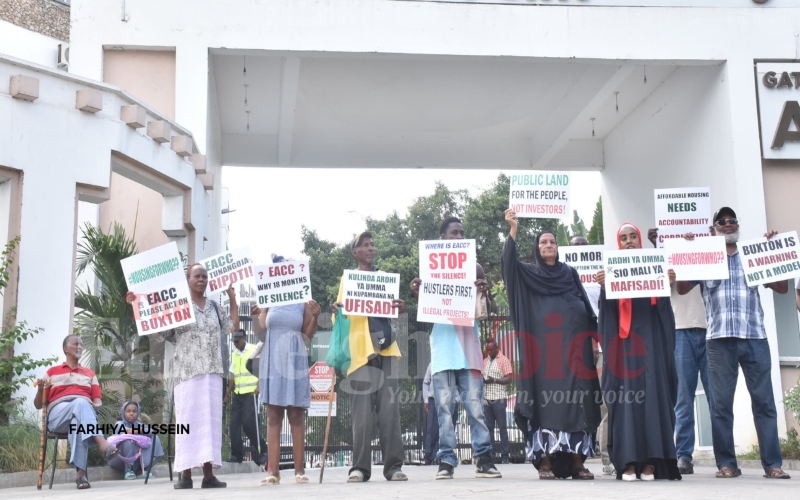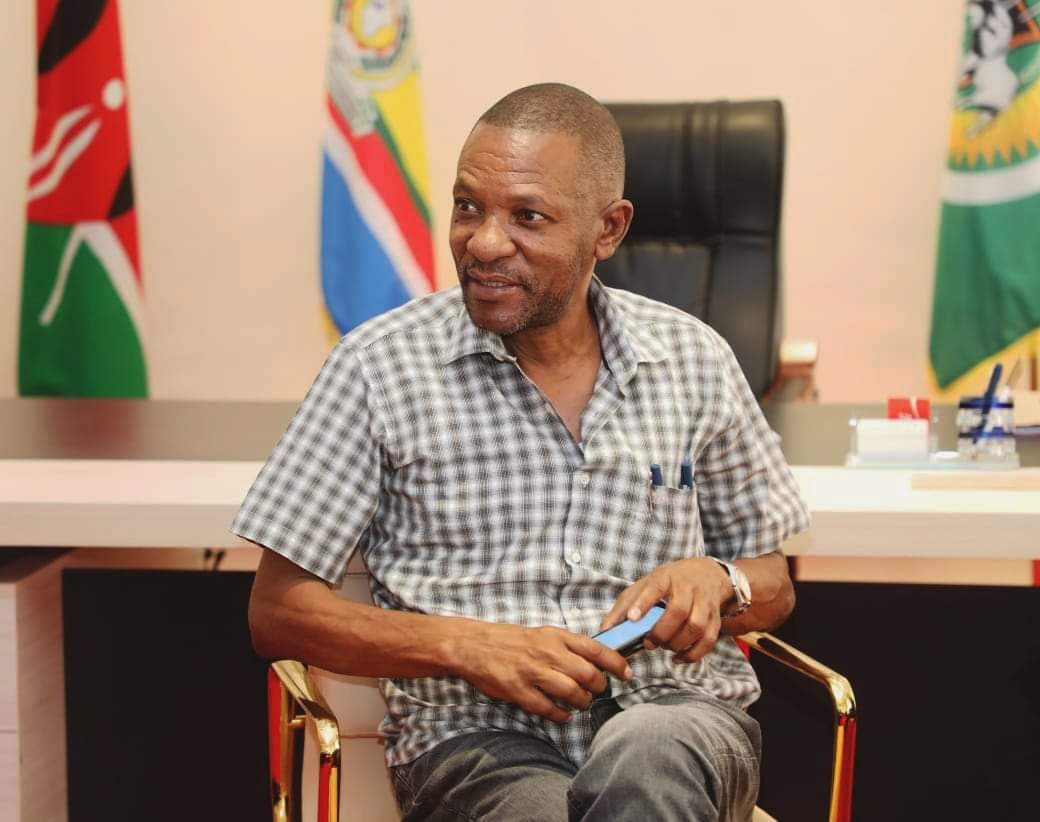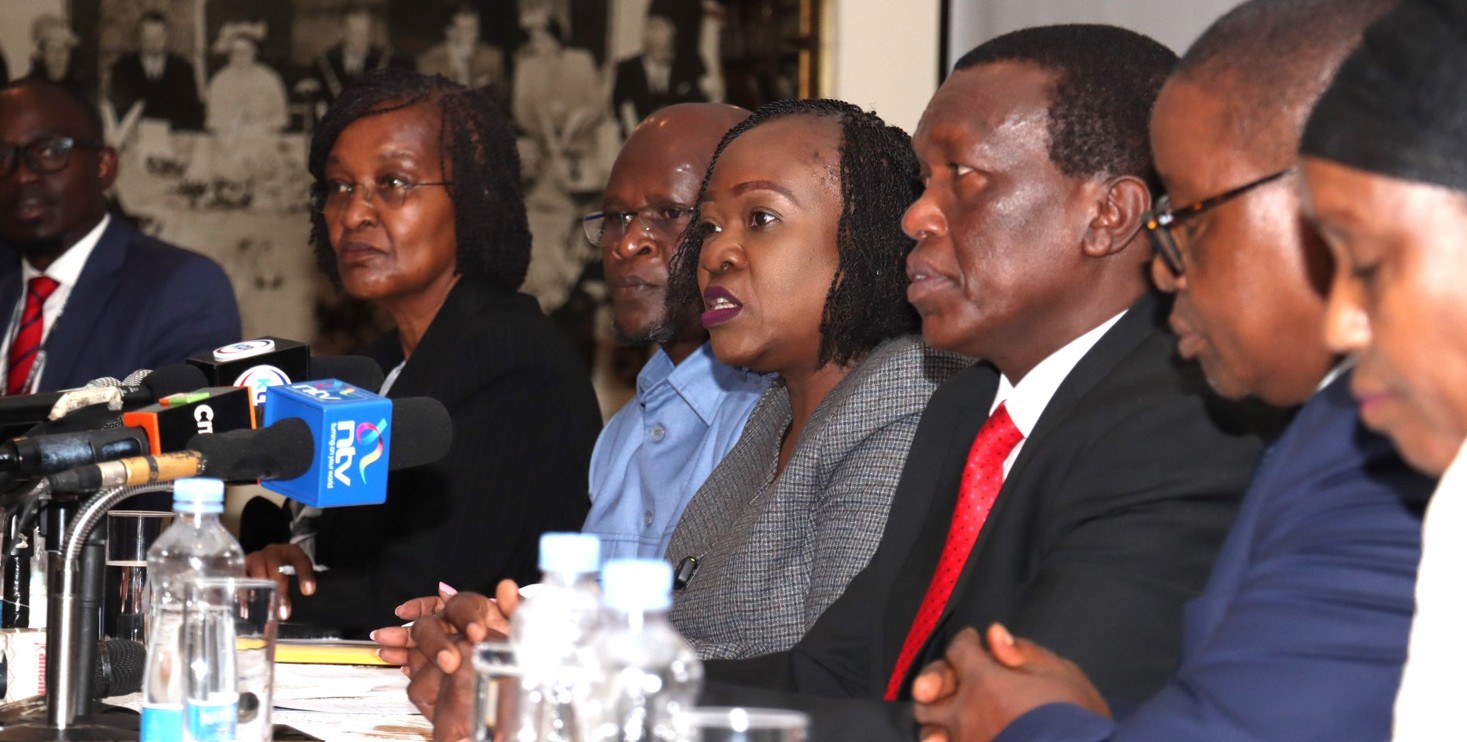NEMA warns Base Titanium mining land poses health risks

The National Environment Management Authority (NEMA) has issued a stern warning about the land used for Base Titanium's mining operations, declaring it unfit for human habitation due to severe contamination.
This comes in response to requests from the relocated local community to return to their former homes.
More To Read
- High Court orders government to pay Sh24 billion for breach of Kwale sugar deal
- Truck that overturned in Uasin Gishu was ferrying natural rubber latex to DRC
- Court bans eucalyptus planting near water sources nationwide
- Kenya seeks World Bank, EU support to remove toxic asbestos roofs
- Runda residents stage protest over controversial luxury housing project
- NEMA targets Sh2 billion revenue through new digital licensing system
Base Titanium, an Australian mining company, is set to cease its operations in December this year.
The mining laws dictate that while immovable assets will be handed over to the national government, movable assets will go to the county government where the mining occurred.
Kwale NEMA Director Duncan Okoth highlighted the dangerous condition of the land, which was heavily affected by extensive mining activities.
"The site is still highly contaminated and poses a great danger to any potential residents," Okoth said.
The mining operations have left behind significant waste deposits and altered the landscape. NEMA has warned that the land will remain unsuitable for habitation for many years and requires substantial rehabilitation.
"The land is loose following the mining activities and could cave in with human activities. We have advised officials to plant eucalyptus and acacia to prevent erosion and reduce the risk of landslides," Okoth added.
Okoth estimated that it could take up to 50 years for the land to return to its original condition. He noted that NEMA is involved in rehabilitating the land and is part of the post-mining land use committee.
Before starting operations, Base Titanium deposited funds with NEMA specifically for soil treatment and land rehabilitation.
These funds are intended to mitigate the environmental damage caused by mining and ensure the land's gradual recovery.
The local community remains divided over the land's future. Many displaced residents want to return to the land, citing poor conditions at their current relocation sites.
"The land we were moved to is swampy and infertile. It has not supported our agricultural needs and has increased our hardship," said Swaleh Abdallah, a resident relocated to Bwita. Swaleh believes returning to their ancestral land would help restore their livelihoods.
In contrast, Ann Nyiro from Kibwaga suggests that the county government should manage and subdivide the land among the displaced families.
"Returning the land to the county government could ensure a fair distribution among the displaced families," Nyiro said, highlighting the inadequate living conditions faced by some individuals.
Other Topics To Read
Another group advocates repurposing the land into a mining institute.
Omar Ali, a supporter of this idea, argues that the existing infrastructure could be used for educational purposes.
"The land and equipment are suitable for a training institute that can teach youth about mining and minerals," Ali said.
He emphasised the global shortage of mining professionals and the opportunity to provide local youth with valuable skills.
At the second annual Jamvi la Madini event, Simon Walls, Base Titanium's External General Manager, acknowledged past operational shortcomings but emphasised the company's efforts to improve relations with the community.
"We admit that we did not start on the right foot, but we have worked hard to improve our relationship with the community," Walls said.
However, Walls clarified that the company has no authority over the land's future use.
"The law stipulates that after mining, we hand over the land to the national government, which will decide the next steps. Our role is to provide suggestions based on our land trials and agricultural assessments," he explained.
Top Stories Today












































